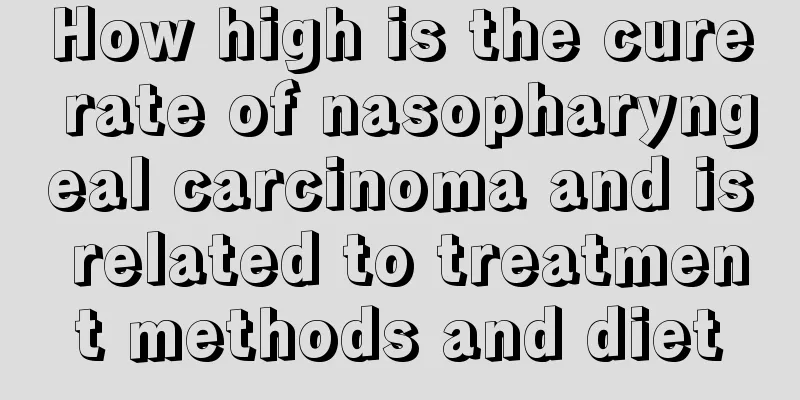What is the most effective treatment for liver cancer? Minimally invasive interventional treatment is the first choice for confirmed liver cancer

|
There are about 300,000 new liver cancer patients in my country every year, and the number is increasing at a rate of 5% per year. Studies have shown that more than 90% of liver cancer patients in my country develop on the basis of hepatitis B or hepatitis C, and 83.6% of liver cancer patients have liver cirrhosis. Since the liver has no nerves, patients only feel pain when liver tumors erode surrounding organs and blood vessels. Clinically, 80% of liver cancer patients have reached the middle and late stages when diagnosed, and have lost the possibility of conventional surgical treatment. Minimally invasive surgery for liver cancer is performed under the guidance of images, so it has the characteristics of small surgical trauma, precise positioning, light pain for patients, quick effect, small side effects, and fast postoperative recovery. It greatly improves the indications for surgery and significantly improves the tumor-free survival rate of patients. At present, clinical minimally invasive surgery for liver cancer has accumulated mature experience, and about 80% of liver cancer patients can receive minimally invasive surgery. There are many ways to treat liver cancer with minimally invasive surgery, one of the important means is vascular intervention chemotherapy embolization. For patients with a history of chronic liver disease or cirrhosis. If liver cancer is confirmed and the lesions are limited to the liver, no matter the size or number of the tumors, radiological intervention is necessary. Radiological intervention can detect all lesions in the liver through angiography. Local perfusion chemotherapy can cause a much stronger attack on the liver tumor than systemic chemotherapy. Iodized oil embolization can block the blood supply to the tumor and cut off the nutrition supply to the tumor. At least the condition can be controlled in a short period of time. Time is bought for other treatments. How long the effect of iodized oil embolization can last depends on the patient's age and liver condition. When the patient is young, the blood vessels are easy to be revascularized. That is, new blood vessels grow, forming collateral circulation, taking away the iodized oil, and the effect of embolization disappears. If there is no cirrhosis, young people have strong regenerative ability, and new blood vessels will form in about 20 days. For people over 40 years old, if they also have cirrhosis. The effect of embolization may last for 2 to 3 months. Therefore, radiological interventional therapy is more effective for patients over 40 years old than for patients around 30 years old. Radiological interventional therapy can be repeated. However, the stimulation of local high-concentration chemotherapy, the radiation damage caused by radiological operation, and the local ischemia caused by iodized oil embolism will affect liver function. Therefore, liver protection treatment after radiological interventional therapy is indispensable. Radiological interventional therapy, which reduces liver function damage to a minimum, is effective for patients with lesions limited to the liver. The extension of survival is obvious. There are many patients over 40 years old who survive for more than two years. Therefore, radiological interventional therapy should be the first choice for the treatment of liver cancer confined to the liver. Even if the lesion has invaded outside the liver, if the patient is in good general condition and has no ascites, and the doctor determines that the catheter can be inserted into the hepatic artery, radiological interventional therapy should be performed first. The primary lesion can be initially controlled, and the patient's overall condition will be further improved. Other methods can then be used to treat lesions throughout the body. |
Recommend
What's wrong with my calves?
In people's daily lives, many people experien...
Most brain tumor patients have genetic factors
To better prevent brain tumors, we must have a ce...
Treatment of several special types of lymphoma
Treatments for specific types of lymphoma include...
How long will it take to die after radiotherapy for esophageal cancer
How long will it take for death after radiotherap...
Root canal expansion steps
Root canal treatment is a common method for treat...
Is the tumor on the liver liver cancer? Not necessarily, you can choose the appropriate treatment plan
Is a liver tumor cancer? Tumors have a huge impac...
How to treat skin amyloidosis
Skin is a very important part of the human body a...
How to change bangs into a middle part
I believe that most girls have gone through a per...
What acupuncture point is on the eyebrow
There are many acupuncture points in the human bo...
What are the best treatments for lung cancer? What are the 3 best treatments for lung cancer?
Among the various treatments for lung cancer, the...
What are the precautions for cholecystitis
Patients with cholecystitis need to follow many p...
What are the best treatments for lung cancer? Three advantages of traditional Chinese medicine in treating lung cancer
In today's medicine, the frequency and types ...
How to wear a wig
When a person is tired of looking at his or her h...
How long does it take for an intramuscular injection to take effect?
It is a very common way to treat some diseases by...
How long can you live with stage 4 lymphoma
This is the issue that many patients and their fa...









